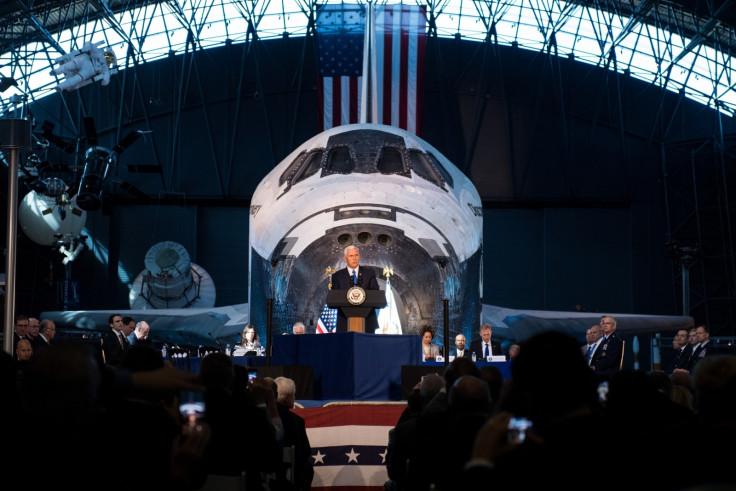Nasa wants government to stop hitting reset button after Trump admin shifts target from Mars to Moon
Nasa's government-initiated shift from Mars to the Moon has not gone down well with the space community.
Nasa has been ordered by the administration of US President Donald Trump to go back to the Moon instead of focusing on Mars, leaving experts baffled as to what this would accomplish.
The impact this order will have on Mars missions and the investment and research that have gone into various projects under directions from the previous government is being questioned by the space community.
The acting administrator of Nasa, Robert Lightfoot, speaking to the Washington Post, offered few details as to the timeline, partner companies and countries that will be involved in the Moon mission. He said details will emerge when the president places the annual budget request before Congress.
According to the Washington Post, one of the biggest challenges Nasa has faced in recent years is not in terms of technological development, but rather dealing with the orders of politicians and flat budgets. This major shift in focus of the human spaceflight programme is happening for the third time in as many government changes.
"We're always asked to change directions every time we get a new president, and that just causes you to do negative work, work that doesn't matter," Scott Kelly, the astronaut who spent nearly a year in space aboard the International Space Station (ISS), told the Post. "I just hope someday we'll have a president that will say, 'You know what, we'll just leave Nasa on the course they are on, and see what Nasa can achieve if we untie their hands,'" he added.
The space agency's change in direction has upset many in the space community, said Scott Hubbard, former director of the Nasa Ames Research Center. "Please don't push the reset button again, because you're just going to waste billions of dollars of previous investment," he said he heard people say.

A long-term plan to orbit Mars and return to Earth, then land people on the Red planet is still in place, for the 2030s, according to the report.
This plan is achievable, "but not if Nasa does a major re-pivot and goes all-in on a base on the Moon. Then clearly Mars is pushed way off into the future", added Hubbard.
Lori Garver, who served as the deputy administrator of Nasa in the Barack Obama era, said she has experience with strategy shifts and that it is to be expected when a new government takes over. She was part of the team that transitioned from George Bush's Moon plans to Obama's Mars strategy. She also pointed out that the giant rocket that Nasa is working on could be used for a Moon mission. Nothing has already been built specifically for Mars, she added.
While Nasa puts together a Mars programme for the distant future, it looks like private companies will get there long before they do. Tesla founder Elon Musk, in a presentation last year, declared that humans will colonise Mars starting 2022, when two ships will arrive with supplies. And, in 2024, there will be human settlers, ready to settle in.
Supporting the creation of a permanent, self-sustaining human presence on Mars. https://t.co/kCtBLPbSg8 pic.twitter.com/ra6hKsrOcG
— SpaceX (@SpaceX) September 29, 2017



















